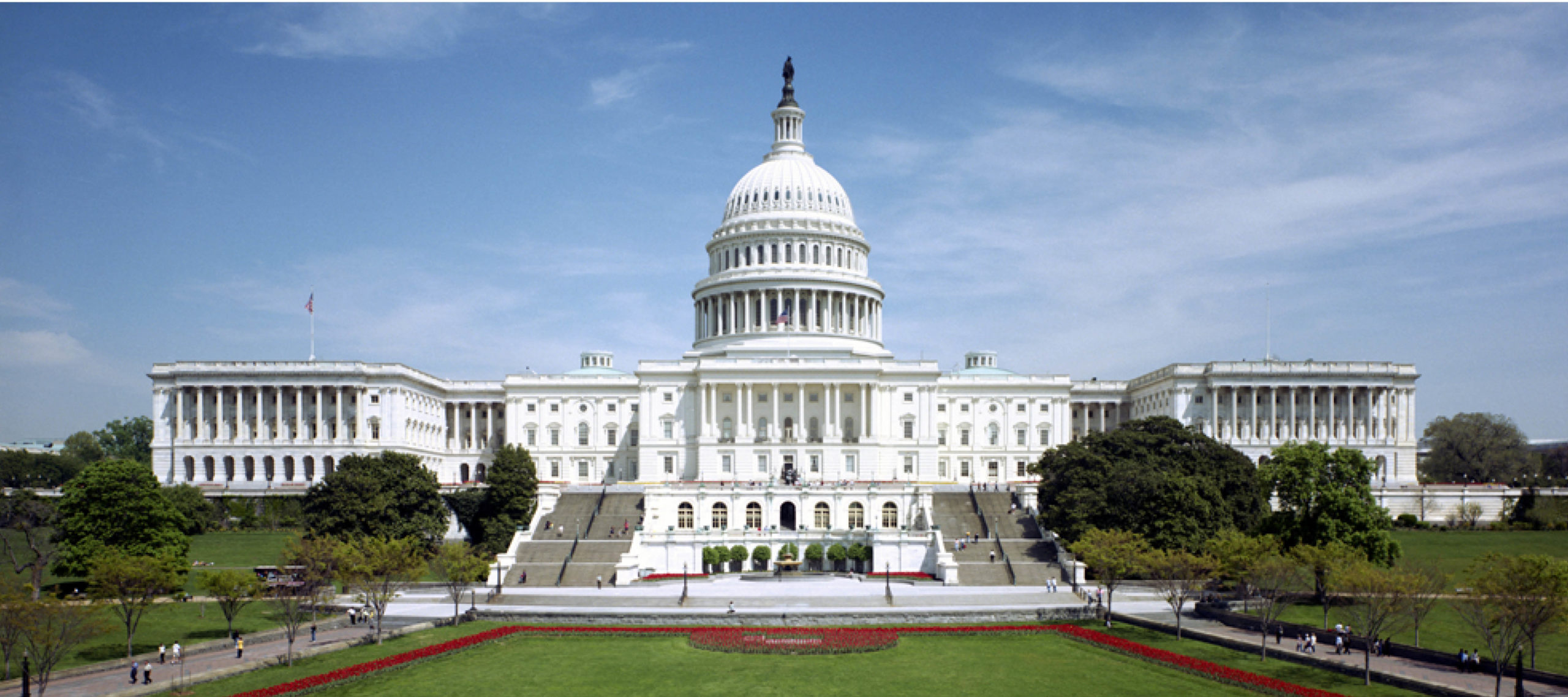Washington in Turmoil: What Investors Should Know
Schwab’s Michael T Townsend – Vice President, Legislative and Regulatory Affairs, Charles Schwab & Co., Inc. put this article together and we found it to be relevant and timely.
It has been an extraordinary start to 2021 in the nation’s capital. The images of a mob protesting the outcome of the presidential election by overrunning the U.S. Capitol building on January 6th are already seared into the nation’s collective memory. A week later, the House of Representatives, for the first time in American history, impeached a president for a second time.
Meanwhile, the city of Washington is putting in place unprecedented security measures in anticipation of further unrest in the days leading up to President-elect Joe Biden’s inauguration on January 20th.
Markets have remained mostly unperturbed by the developments, with the S&P 500® posting a gain of about 1.4% year to date as of the close of trading on January 13th. The uncertainty of when tensions will ease could produce market volatility in the coming days, but investors seem to be anticipating that next week’s transfer of power will herald continued positive momentum for the economy, with additional economic stimulus and a focus on vaccine distribution at the top of the incoming Biden administration’s priority list.
Democrats control the policy agenda, but will face significant challenges
Investors are also digesting the new power structure on Capitol Hill. Victories by both Democratic candidates in Georgia’s twin Senate run-off elections on January 5th have resulted in a 50-50 tie in the Senate. Tie votes are broken by the vice president, so once Vice President-elect Kamala Harris takes the oath of office on January 20th, Democrats will have the narrowest of majorities in the chamber. Coupled with their narrow majority in the House of Representatives, the party will have full control of Washington after Inauguration Day.
Key implications of the Democrats having majorities in Congress:
President-elect Joe Biden’s Cabinet nominees should have a smooth path to confirmation. The president-elect’s Cabinet choices, as well as heads of various regulatory agencies, should proceed smoothly and quickly through the Senate confirmation process, ensuring that the new president’s team is in place relatively soon after the inauguration.
The 2021 policy agenda is coming into clearer focus … but the razor-thin margins in Congress will act as a brake on Democratic ambitions. With narrow majorities in both the House and Senate, the incoming Biden administration will have more freedom to pursue its policy priorities than it would have if it was facing a split Congress. But the narrow margins—a single-digit majority in the House and the narrowest possible majority in the Senate—and the lack of Democratic unanimity on many issues will curb most of the ambitious campaign proposals of the president-elect. Markets will likely take comfort that the administration may need to scale back its plans in areas like climate change, health care, and tax increases. And major structural reforms such as ending the filibuster in the Senate, expanding the Supreme Court and changing the electoral college will be much harder to achieve in the narrowly divided Congress, where some Senate Democrats have already publicly opposed such changes.
But there are areas where Democrats are optimistic they can succeed. Expect another economic stimulus/coronavirus relief package to top the priority list. There was already growing bipartisan support for increasing stimulus payments to $2,000; that could be a core feature of the next package. Democratic priorities, including aid to state and local governments, more funding for vaccine distribution, a further extension of enhanced unemployment benefits (currently due to expire March 14th), an extension of the moratorium on evictions (currently due to expire at the end of January) and further student loan relief, are among the contenders for inclusion in another round of stimulus.
Infrastructure remains a candidate for bipartisan action. Both parties support more spending on roads, bridges and other infrastructure needs, but have been stymied by how to pay for it. While that issue will still need to be sorted out, infrastructure spending is likely to be a top priority for the incoming administration.
Tax increases are on the table. Some may be more realistic than others. Tax increases are likely to be used to offset the cost of the new administration’s spending plans. Ideas like a modest increase in the corporate tax rate and returning the top individual tax rate to 39.6% have the highest chances of success. But there is far less agreement among Democrats on other ideas, such as making changes to the estate tax or increasing taxes on capital gains and dividends for wealthier filers. Those may be tougher to get through Congress, even with Democrats in control of both chambers.
Any tax increases in 2021 are unlikely to take effect before 2022. If individual tax code changes are approved this year, there is little historical precedent for those changes to be retroactive to the beginning of the year. Investors should have time to understand and plan for any changes to the tax code before they go into effect.
Expect a lot of executive orders. One tool that Biden will have available to him is the ability to sign executive orders. These edicts allow the White House to set policy without consulting Congress. Biden is expected to issue numerous executive orders in the early days of his presidency to reverse Trump-era regulations in areas like immigration and the environment. But executive orders have their limits. The president, for example, cannot alter the tax code via executive order—taxes are the responsibility of Congress. So, expect the new president to push for policy changes that can navigate the tricky paths of a narrowly divided Capitol Hill.
Takeaways for investors
Mark Riepe, head of the Schwab Center for Financial Research, says, “While there remains an elevated risk of market volatility in the days leading up to the presidential inauguration, that is likely only a short-term risk, and there is no specific action for investors to take right away.”
However, Mark says, here are some things to consider now (and whenever markets face potential volatility):
Make sure your portfolio is consistent with your goals, risk tolerance, and preferences. If you are uncomfortable with market volatility and have short-term goals, make sure you don’t have too much invested in risk assets and that you have a plan to meet cash-flow needs.
Revisit your goals and objectives. If you don’t have a plan, or if it hasn’t been updated in a while, now would be good time to develop one.
Don’t try to time the market. Attempting to time the market rarely works—but it’s especially difficult to try to time the market around unexpected geopolitical events, like elections or COVID-19. Focus on the time horizon for each goal.
Active traders should be prepared for volatility. Equity traders should consider reducing average share size and dollar amounts in the near term.









